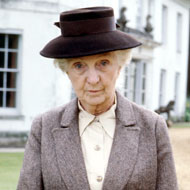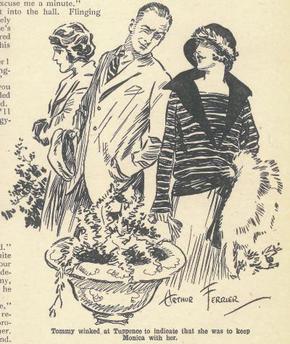I’ve been spending most of my time this weekend (and Monday) getting my short stories ready to send to the lovely, lovely people who volunteered to critique them for me (and attempting to clean my house, burning out the belt on my vacuum, deciding to forget housecleaning and making baked doughnuts with the kids instead), but I did scratch out enough time to read through The Floating Admiral.
Have you heard of it? It’s a joint effort by the Detection Club (some notable members: Agatha Christie, GK Chesterton, Dorothy Sayers, Anthony Berkeley, Freeman Wills Croft … etc) to see if they could detect a mystery without knowing the end. Each person wrote one chapter, and then handed it off to the next without any hints. Anthony Berkeley had the unenviable task as the end of trying to make sense of the preceding tangle of clues and evidence, and wrapping it up in a tidy solution (which he did BRILLIANTLY), and then in an appendix at the back, each author revealed his or her own solution.
It was fascinating. I loved it. Both as a mystery fan and a writer. As a mystery fan, it was delightful to see each writer try to guess where the previous writer had been pointing, and to contrast the different styles of writing and detection. As a writer, I loved seeing the way they played off each other and used each other to make their own writing stronger. My favorite part, honestly, was the appendix where they all revealed their solutions, because it showed so plainly the way each of them crafted their stories (Agatha Christie’s solution, by the way, was the most preposterous, and yet you KNOW that if she had written the entire thing, we would have swallowed it without hesitation). From Sayers’ complex and tidy backstory and timetable to Clemence Dane’s frank admittance that it was all a muddle to him and he just tried to leave it open so that Berkeley could finish it off in any way he pleased, it was great.
Trying to read it as one cohesive detective story would be fairly exhausting, and judging by some of the negative reviews I’ve read of this, that’s where many people go wrong. Reading it for the enjoyment of seeing all these authors work together and blend their many different styles (the main detective in the story, Inspector Rudge, ends up being a character of so many layers and great depth, simply because he is written by so many different people – just watching his character develop was half the fun for me) is the way to go with this story.
I’ve been plotting a joint fanfiction story with two of my good friends (Adrienne and Cathy, we really need to get moving on this!), consisting of letters and journal entries between three cousins. It’s not the same premise as The Floating Admiral, but much of the idea is the same – we each have our own idea of our character’s story, and the fun and challenge will be weaving them together into something cohesive.
This is one of those aspects of writing that thrills me. As much as I love crafting stories and bringing characters to life on my own, I also love the thought of being part of a community of writers. The very idea of the Detection Club makes me happy, much like the Inklings (if given the option of going back in time and sitting in on only one meeting of those two groups, I’d be hard-pressed to pick between them). Can you imagine if the Inklings had written a joint-effort fantasy like the Detection Club did with The Floating Admiral? It would have been amazing and hysterical, all at once.
Twitter and blogs are a wonderful way to build writers’ communities; one of the reasons I’m thrilled to have critique partners for my short stories is because it is yet another way to build that same sense of community. Ultimately, though, nothing quite beats in-person meetings of a regular sort, to discuss and laugh and help each other become better writers.
Maybe someday – for now, I’m thankful, so very thankful, for these internet communities I can call my own.





